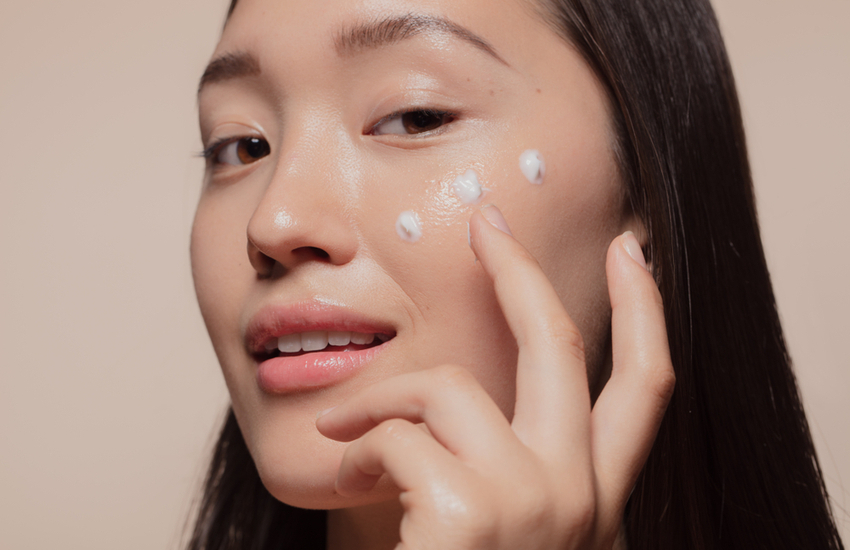
The daily skincare routine consists of a cleanser, toner, serum, moisturizer, and sunscreen. The moment you step out in the sun, you need SPF to protect your skin. Ultraviolet Radiation is one of the most common environmental health hazards that cause highly toxic effects in most living organisms. UV radiation can lead to harmful effects such as eye damage, skin cancer, and skin damage due to increased production of reactive oxygen species and direct DNA damage. When this damaged DNA is not repaired, it becomes a mutation source and interferes with cellular mechanisms. It is best to avoid reaching that stage as sunburn indicates that DNA in your skin cells has been damaged.
What to Look for in a Sunscreen?
You should keep these things in mind before buying sunscreen!
- Broad spectrum (protects from both UVA and UVB rays)
- Noncomedogenic
- Fragrance-free
- Oil-free
- Paraben-free
- SPF of at least 30 or higher
Physical or Mineral Sunscreen
It is advisable not to rub hard after applying physical sunscreens as they work best on the skin’s surface. They leave behind a layer on the skin, which is quite helpful to see which skin areas are covered or missed. The ideal sunscreen works by leaving behind a uniform film on the skin’s surface. If the sweat removes the sunscreen, it should be reapplied. However, for individuals with acne-prone skin, sometimes a layer on top can irritate their skin and potentially lead to breakouts as everyone’s skin is different.
Chemical Sunscreen
While chemical sunscreens work like a sponge and are easier to rub on the surface without leaving anything behind on the skin’s surface, they use chemicals to prevent UV rays from entering your skin by absorbing the rays with a chemical reaction. While playing a sport or swimming, you may require a water-resistant or skin-absorbent sunscreen. So, it depends on your requirement and how well it suits your skin. However, there have been controversies around the ingredients of chemical sunscreens as they are lighter and absorb into the skin. Studies have found that common chemical sunscreen ingredients such as oxybenzone may bleach and damage coral reefs.
For Sensitive Skin
If you have sensitive skin, you should be mindful of which sunscreen to use. You should avoid using sunscreen that can lead to further breakouts and irritate your skin. You can look for a product that is labeled sensitive or blemish-prone skin. If you choose the right product, it can improve the appearance of your skin. However, if you aren’t sure which product to choose, then ask your dermatologist or pharmacy to guide you in the right direction.
